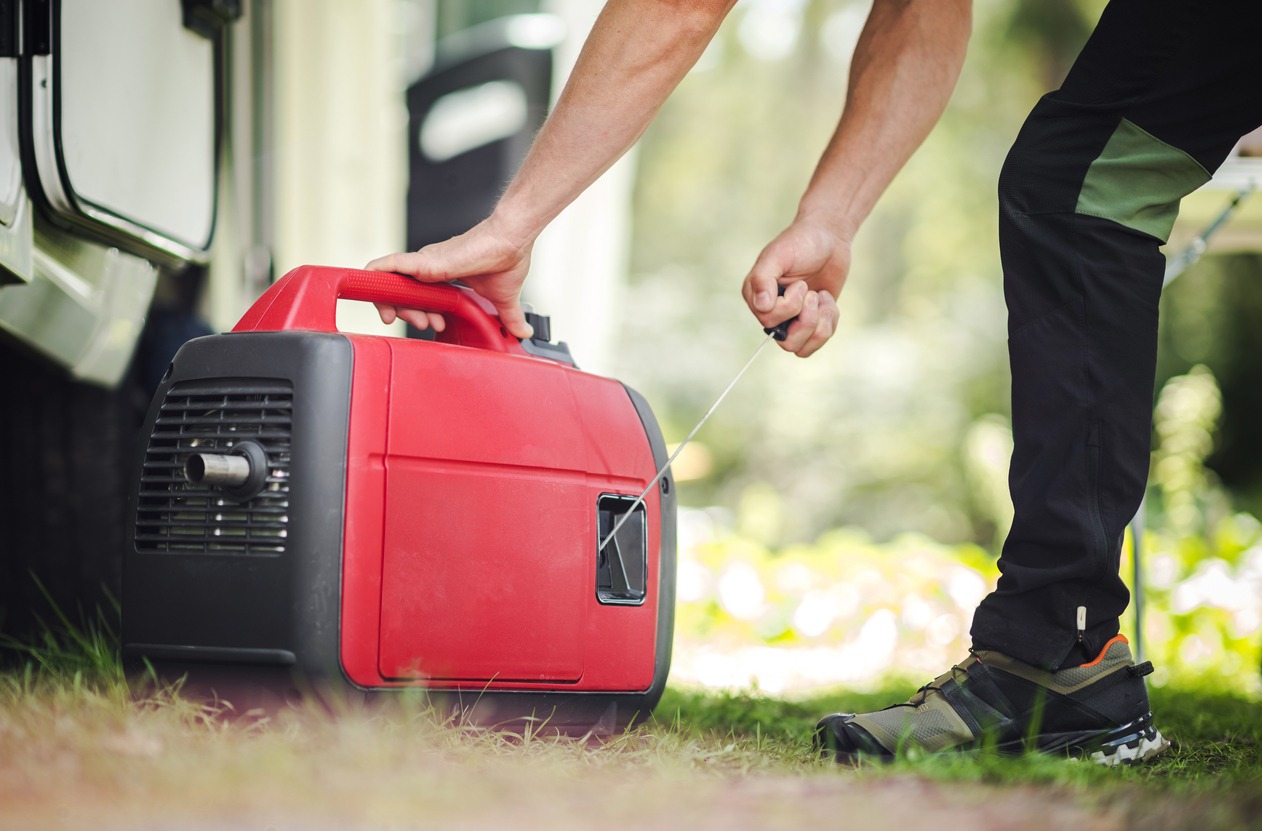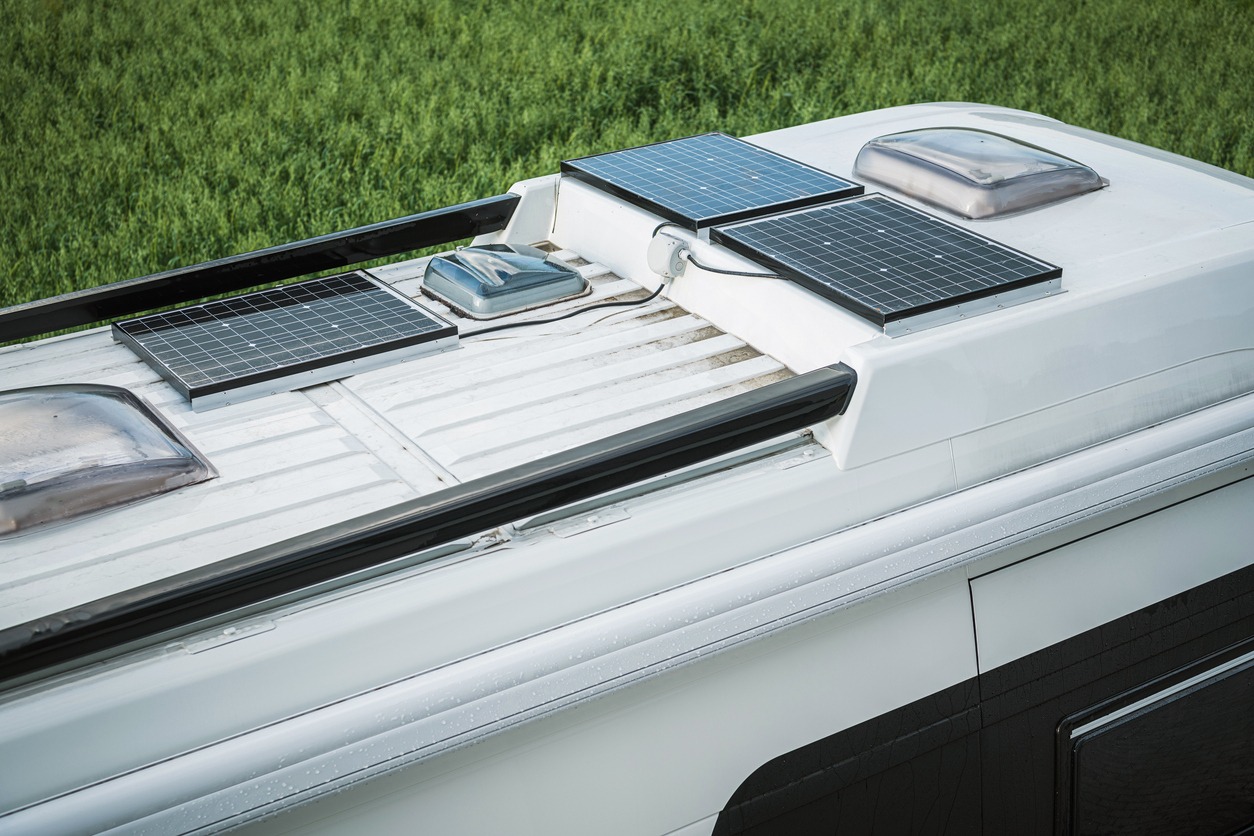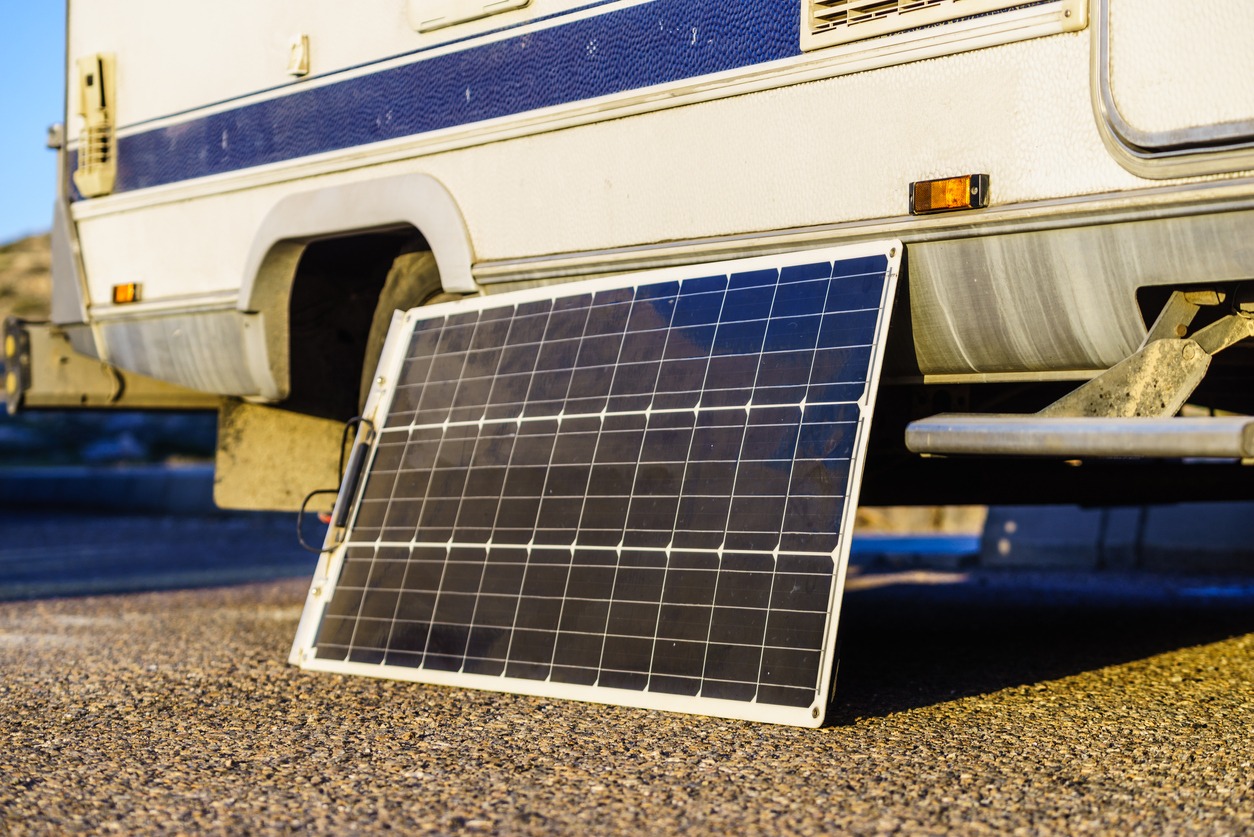When it comes to RVing and camping, having a generator can be a lifesaver. Not only do they provide power when you’re on the road or in the wilderness, but they also offer great convenience at home. Generators come in a variety of options, so it’s important to consider what type fits best for your needs. In this blog post, we will discuss different types of generators, key features to consider, and some safety tips that you should keep in mind when using them.
Types of Generators
Campers and RVers alike can use a variety of generators to power their devices.
For those who want something smaller and portable, there are gas- and diesel-powered models that can be easily transported and set up in any setting. They range in power output from 2,000 watts to 10,000 watts but are limited in their overall capabilities.
For those looking for more power and the ability to run larger appliances like air conditioners, a standby generator is an ideal option. These are permanently installed units, typically available in propane or natural gas models, with outputs ranging from 7500 Watts to 22,000 Watts or higher.
Here are the three main generator types used in RVing and camping:
Gasoline Generator:
Gasoline generators are an affordable and reliable option for RVing and camping. These generators are powered by gasoline which is relatively inexpensive and abundant across the country. They come in a variety of sizes, from small portable units to larger stationary models. Portable generators provide between 2,000-10,000 watts of power and offer an ideal solution for on-the-go power needs, while larger stationary models can produce up to 22,000 watts or more, depending on the model. Gasoline generators can be used to run a variety of appliances, such as air conditioners, microwaves, and even TVs.
Propane Generator:
Propane generators are an increasingly popular option for RVers and campers. They provide more consistent power than gasoline-powered units and emit fewer fumes, making them ideal to use in enclosed areas. Propane models also offer greater efficiency and require less maintenance than gasoline-powered generators. Additionally, propane is more economical than gasoline, making it a more cost-effective choice for those on a tight budget. Generally speaking, propane generators range in power output from 7500 Watts up to 22,000 Watts or higher, depending on the size of the unit. With the right generator, you can easily keep your devices powered while camping and RVing.
Solar Generator:
Solar generators are an ideal solution for RVers and campers looking to reduce their environmental impact as they explore the great outdoors. These models are powered by solar panels that convert sunlight into electricity, making them a renewable energy source with virtually unlimited potential. Solar generators provide clean and quiet power suitable for powering even sensitive electronics such as laptops or tablets. Generally, these units range in power output from 500 Watt-hours up to 3,000 Watt-hours or higher, depending on the size of the generator and the number of solar panels included. With solar power, you can experience the freedom and convenience of having an endless supply of energy wherever your travels take you!
Features to Consider
Once you know the different types of generators used in camping, you now have to consider various factors before making your purchase.
Here’s a list of what to consider when buying a generator for RVing and camping:
Noise Levels:
If you’re buying a generator for camping, noise levels should definitely be a key factor in your decision. While you want to make sure that your generator is powerful enough to suit your needs, it’s also important to think about how loud the unit is. Generators running on gasoline typically produce more noise than those running on diesel or propane. Consider how close you will be to other campers or wildlife when selecting a generator, and choose one with a low noise output to ensure everyone can enjoy their camping trip in peace.
Fuel Type:
When it comes to buying a generator for camping, fuel type is an important factor to consider. Most generators run on gasoline, but some models are available with diesel or propane options. Diesel and propane are typically more reliable and require less maintenance than gasoline engines, so they can be attractive options for those looking for a low-maintenance generator. Another option is a solar-powered generator, which has the added benefit of being eco-friendly. However, these fuels may not always be convenient or available in certain areas, so make sure you have easy access to the fuel source you choose before making your purchase.
Portability:
If you’re planning to take your generator camping, portability should be a key factor in your decision. Generators come in various sizes and weights, so be sure to choose one that is lightweight and easy to transport. Look for models with handles or wheels for easy moving, and make sure that you can fit the generator in your vehicle for transportation. Consider how often you plan on using the generator and how you will transport it to ensure portability around your campsite.
Power Output:
When buying a generator for camping, the power output is one of the most important factors to consider. Depending on what activities you plan on using the generator for, you may need to look for one with higher wattage ratings. Make sure to check how much power your appliances or electronics require and research the wattage rating on different generators to find one that can provide sufficient power. Additionally, if you are looking for quieter operation, models with lower wattages tend to run quieter than those with higher outputs.
Safety Tips in Using Generators for RVing and Camping
When using a generator for RVing and camping, it is important to follow various safety tips to ensure your safety and the safety of your equipment.
Here are various safety tips you should keep in mind:
1. Always read and follow the manufacturer’s instructions for the safe operation of your generator.
2. Make sure to use the correct fuel type as specified by the manufacturer and refuel your generator outdoors rather than indoors or in enclosed spaces.
3. Locate your generator at least 20 feet away from any window or door to prevent dangerous exhaust fumes from entering your living space.
4. Ensure that all power cords are connected properly to avoid overloading or short-circuiting the system, which can lead to potential fires.
5. Use ground fault circuit interrupter (GFCI) outlets when plugging electrical devices into the generator to protect against electric shock hazards caused by water contact.
6. Finally, never leave your generator running unattended, as this can result in carbon monoxide poisoning or other dangers due to improper ventilation or fuel spills near open flames and hot surfaces such as grills or campfires.
Final Thoughts
In conclusion, when buying a generator for RVing and camping, it is important to always keep safety in mind. Do your research and make sure the generator you purchase meets all safety requirements. Check the manufacturer’s instructions for use and ensure that all power cords are connected properly. Finally, when operating the generator, make sure to abide by all safety protocols so that you have an enjoyable experience while enjoying nature safely.


